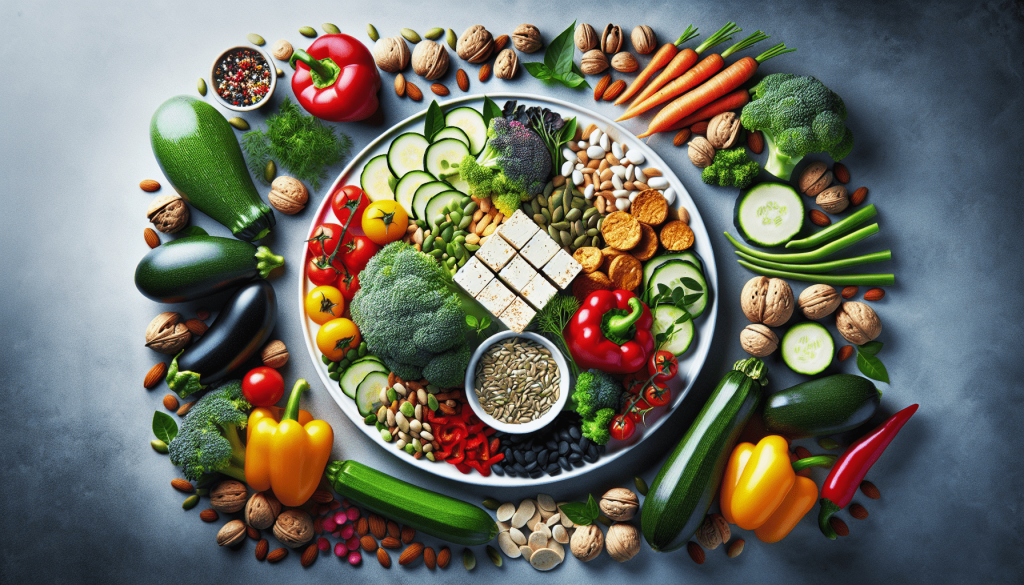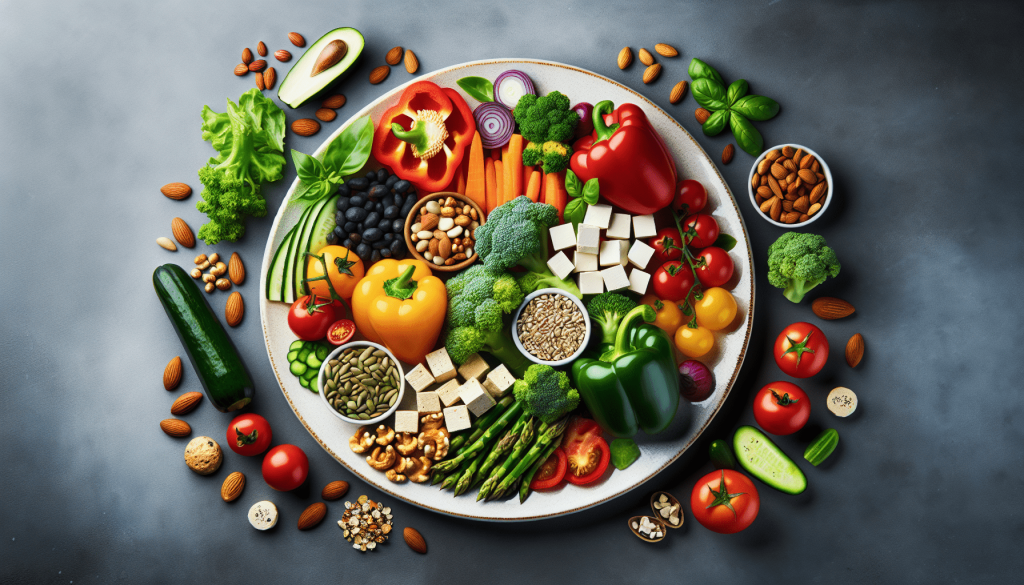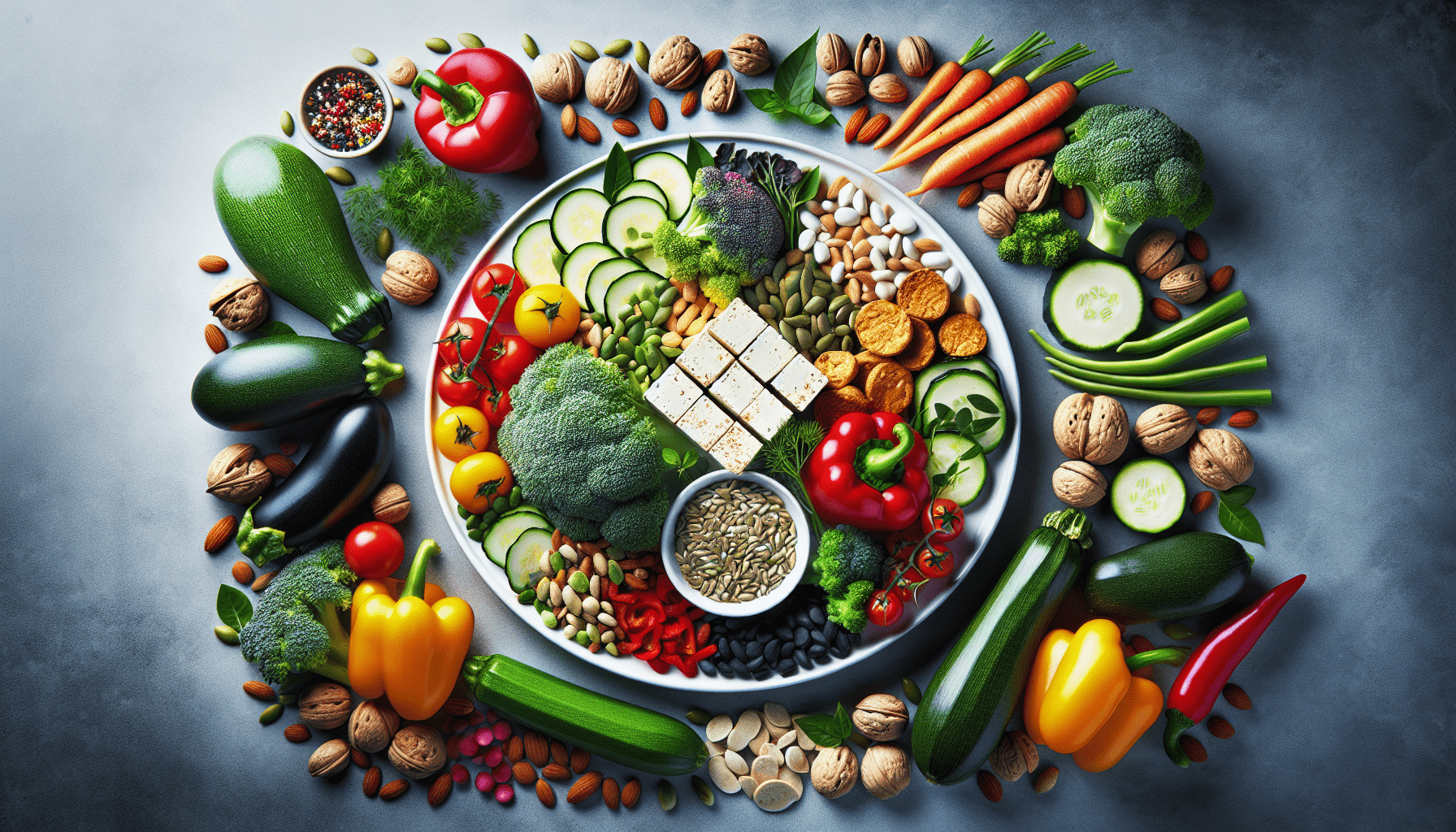Welcome to the exciting world of exploring vegetarian and vegan keto diets! Many people wonder if it’s even possible to follow a ketogenic diet while also being vegetarian or vegan. The good news is, with the right approach and mindset, it is absolutely possible to achieve a balance between these dietary choices. In this article, we will dive into the principles of a vegetarian or vegan keto diet, offer tips and tricks for success, and provide delicious recipe ideas to inspire your journey towards a healthier lifestyle. Get ready to discover a whole new way of eating that combines the benefits of keto with the compassion of a plant-based diet!
Exploring Vegetarian and Vegan Keto Diets
Have you ever wondered if it’s possible to follow a vegetarian or vegan diet while also trying to maintain a ketogenic lifestyle? You may be surprised to find out that it is indeed possible to combine these two dietary approaches and create a unique eating plan that suits your preferences and health goals. In this article, we will dive into the world of vegetarian and vegan keto diets, exploring the benefits, challenges, and helpful tips to make this dietary journey a successful and enjoyable one.
What is a Vegetarian Keto Diet?
Let’s start by breaking down the basics – what is a vegetarian keto diet? A vegetarian keto diet is a low-carb, high-fat eating plan that eliminates meat products while still allowing for the consumption of eggs and dairy. By restricting carbohydrates and increasing healthy fats in your diet, your body enters a state of ketosis, where it burns fat for fuel rather than glucose.
If you’re considering a vegetarian keto diet, you may be wondering what foods you can eat and how to ensure you’re meeting your nutritional needs. Let’s break it down for you!
Vegetarian Keto Food List
When following a vegetarian keto diet, your main sources of nutrients will come from plant-based foods, eggs, and dairy. Here is a breakdown of the food groups you can incorporate into your meals:
| Food Group | Examples |
|---|---|
| Low-Carb Vegetables | Spinach, broccoli, cauliflower |
| Protein Sources | Eggs, tofu, tempeh, Greek yogurt |
| Healthy Fats | Avocado, olive oil, nuts, seeds |
| Dairy Products | Cheese, heavy cream, Greek yogurt |
| Berries | Strawberries, blueberries, raspberries |
| Nuts and Seeds | Almonds, chia seeds, flaxseeds |
| Plant-Based Proteins | Lentils, chickpeas, edamame |
By including a variety of these foods in your vegetarian keto diet, you can ensure you’re getting a good balance of nutrients while keeping your carb intake low.
Tips for Following a Vegetarian Keto Diet
Navigating a vegetarian keto diet may seem challenging at first, but with some helpful tips, you can stay on track and enjoy the benefits of this unique eating plan. Here are a few tips to make your vegetarian keto journey smoother:
- Plan your meals ahead of time to ensure you have the right ingredients on hand.
- Experiment with new recipes and food combinations to keep things exciting.
- Monitor your protein intake and consider supplementation if needed.
- Stay hydrated and include electrolyte-rich foods to prevent keto flu symptoms.
- Listen to your body and adjust your diet based on how you feel.
By following these tips, you can create a sustainable and enjoyable vegetarian keto diet that works for you.

What is a Vegan Keto Diet?
If you’re following a vegan lifestyle, you may be wondering if it’s possible to combine veganism with a ketogenic diet. A vegan keto diet eliminates all animal products, including eggs and dairy, and focuses on plant-based sources of protein and fats. By making conscious food choices and prioritizing nutrient-dense foods, you can create a vegan keto diet that supports your health and wellness goals.
Are you ready to explore the world of vegan keto and discover how you can thrive on a plant-based ketogenic diet? Let’s dive in!
Vegan Keto Food List
When following a vegan keto diet, you’ll need to focus on plant-based sources of protein, healthy fats, and low-carb vegetables. Here’s a breakdown of the food groups you can include in your meals:
| Food Group | Examples |
|---|---|
| Low-Carb Vegetables | Zucchini, kale, bell peppers |
| Protein Sources | Tofu, tempeh, seitan, protein powder |
| Healthy Fats | Coconut oil, avocado, nuts, seeds |
| Vegan Dairy Alternatives | Coconut milk, almond milk, vegan cheese |
| Berries | Blackberries, strawberries, raspberries |
| Nuts and Seeds | Walnuts, hemp seeds, pumpkin seeds |
| Plant-Based Proteins | Lentils, chickpeas, quinoa |
By including a variety of these plant-based foods in your vegan keto diet, you can ensure you’re meeting your nutrient requirements while staying in a state of ketosis.
Tips for Following a Vegan Keto Diet
Embarking on a vegan keto diet may require some adjustments to your usual eating habits, but with the right tips and strategies, you can make it a seamless transition. Here are some tips to help you navigate a vegan keto lifestyle:
- Include a variety of protein sources to meet your daily requirements.
- Incorporate plenty of healthy fats to stay satiated and energized.
- Focus on nutrient-dense foods to ensure you’re getting essential vitamins and minerals.
- Experiment with vegan keto recipes and meal plans to keep things interesting.
- Listen to your body and make adjustments based on how you feel.
By following these tips, you can embrace a vegan keto diet with confidence and enjoy the benefits of this unique eating plan.

Benefits of Vegetarian and Vegan Keto Diets
Now that you have a better understanding of vegetarian and vegan keto diets, let’s explore the benefits of combining these two dietary approaches. Whether you’re looking to improve your health, manage your weight, or reduce your carbon footprint, vegetarian and vegan keto diets offer a range of advantages for your overall well-being.
Health Benefits
Both a vegetarian and vegan keto diet can provide numerous health benefits, including improved weight management, better blood sugar control, and reduced inflammation in the body. By eliminating processed foods and focusing on whole, nutrient-dense foods, you can support your immune system, gut health, and overall vitality.
Environmental Impact
Following a vegetarian or vegan keto diet can also have a positive impact on the environment. By reducing your consumption of animal products and opting for plant-based alternatives, you can lower your carbon footprint and contribute to sustainable food production practices. This environmentally conscious approach to eating can help protect natural resources and promote biodiversity.
Ethical Considerations
For many individuals, following a vegetarian or vegan diet is a conscious choice that aligns with their values and beliefs. By adopting a plant-based lifestyle, you can support animal welfare, reduce animal suffering, and promote compassion towards all living beings. This ethical consideration is a driving force for many people who choose to follow a vegetarian or vegan keto diet.
Challenges of Vegetarian and Vegan Keto Diets
While there are many benefits to exploring a vegetarian or vegan keto diet, it’s essential to acknowledge the challenges that may arise along the way. From potential nutrient deficiencies to social situations, here are some common challenges you may encounter when following these dietary approaches.
Nutrient Deficiencies
One of the main challenges of vegetarian and vegan keto diets is the risk of nutrient deficiencies, particularly in vitamins such as B12, iron, and omega-3 fatty acids. By eliminating animal products from your diet, you may need to pay extra attention to sourcing these essential nutrients from plant-based alternatives or supplements to prevent deficiencies.
Social Situations
Navigating social situations while following a vegetarian or vegan keto diet can sometimes be tricky, especially when dining out or attending gatherings with friends and family. It’s important to communicate your dietary preferences and needs clearly, plan ahead for meals, or bring your own dishes to ensure you have options that align with your dietary choices.
Finding Balance
Maintaining a balance between your macronutrient intake, micronutrient needs, and lifestyle preferences can be a challenge when following a vegetarian or vegan keto diet. It’s essential to listen to your body, monitor your health markers, and adjust your diet as needed to ensure you’re getting the nutrients you need to thrive on this unique eating plan.
Tips for Overcoming Challenges
While challenges may arise when following a vegetarian or vegan keto diet, there are strategies you can implement to overcome them and stay on track with your health and wellness goals. Here are some tips to help you navigate the challenges of these dietary approaches:
- Work with a healthcare professional or nutritionist to develop a personalised meal plan that meets your nutrient requirements.
- Incorporate a variety of nutrient-dense foods into your diet to ensure you’re getting essential vitamins and minerals.
- Be open and communicative about your dietary preferences with friends, family, and restaurant staff to make social situations more manageable.
- Stay informed about plant-based sources of key nutrients and consider supplementation if needed to fill any gaps in your diet.
- Listen to your body and make adjustments to your diet as needed to maintain optimal health and well-being.
By following these tips and staying mindful of your dietary choices, you can overcome the challenges of vegetarian and vegan keto diets and create a sustainable eating plan that works for you.
Final Thoughts
As you navigate the world of vegetarian and vegan keto diets, remember that it’s essential to find a balance that suits your lifestyle, preferences, and health goals. Whether you choose to follow a vegetarian or vegan eating plan, incorporating keto principles can offer a range of benefits for your well-being and the environment.
By exploring different food options, recipes, and meal plans, you can create a unique dietary approach that supports your health and aligns with your values. Stay open-minded, listen to your body, and enjoy the journey of discovering new ways to nourish yourself through a vegetarian or vegan keto lifestyle.
Are you ready to embrace the challenge and reap the rewards of vegetarian and vegan keto diets? With the right guidance, tools, and resources, you can embark on this exciting dietary journey and experience the transformative power of plant-based eating combined with ketogenic principles. Happy exploring and best wishes on your vegetarian and vegan keto adventure!
